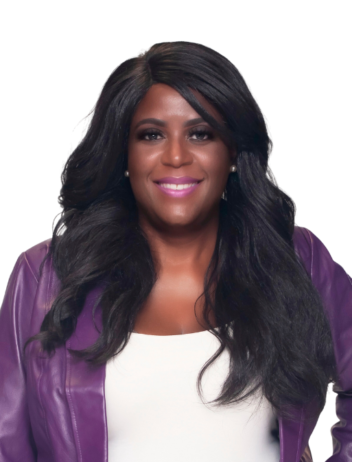January 22, 2024


No one really wants to think that your coworkers are not your friends. And yet, you’re at another team meeting, ideas bouncing around the room, laughter and chatter filling the air. Yet you feel out of sync, sensing something: though perfectly pleasant, coworkers are not your friends. This realization can be uncomfortable but common, especially for Black women. While friendliness has its place, wise professionals know when to draw the lines between merely cordial relationships and true friendships at work. But that doesn’t mean we want to work all day in a place where coworkers are not your friends.
Blurring these lines can jeopardize your career advancement and personal well-being. When your coworkers are not your friends, you must adopt strategies to succeed on your own terms. This article explores five research-backed approaches to help ambitious Black women navigate tricky work dynamics with grace.
5 Strategies to Navigate the Workplace when Coworkers Are Not Your Friends
- Establish Clear Professional Boundaries
Creating well-defined personal and professional lines at work clarifies relationships and expectations. Over 60% of professionals believe stronger workplace boundaries improve productivity and office relationships, as per a LinkedIn survey. Without clear borders, coworkers may feel entitled to overstep or make inappropriate requests.
Define your comfort levels regarding after-hours communications, personal favors, sharing private details, and other non-work related areas. If others cross the line, address it diplomatically but firmly.
As well professional boundaries are important. For instance, if a coworker asks you to lie or be dishonest on a report, politely decline and remind them you prefer keeping work and ethical and maintaining your integrity.
Enforcing your boundaries consistently and fairly ensures you remain approachable yet professional. It also reduces dealings with colleagues overstepping their role or taking advantage.
Our career coaching services help Black women recognize situations requiring clearer boundaries at work. We also provide the tools and scripts to assert your limits diplomatically while upholding your values.
- Cultivate Networks Beyond Your Immediate Team when They’re Not Friends at Work
Intentionally developing a strong, diverse professional network is linked to increased leadership opportunities and promotions for women, finds Harvard Business Review. Rather than solely befriending your direct team, connect widely across your company and industry. Identify multi-dimensional individuals who can become valuable allies and sponsors. This is really important when you realize coworkers are not your friends in the workplace.
Build relationships centered on mutual benefit, not forced friendships. Share advice and contacts without expecting personal favors in return. Over time, such networking contacts morph into a supportive community to lean on during tricky office politics or career changes.
Our comprehensive career coaching offers strategies for expanding your networks authentically at any stage. We also provide the framework for cultivating connections that accelerate, rather than stagnate, your trajectory.
Related reading: Confidently Take Charge of Your Career with Power & Principles
- Develop Greater Emotional Intelligence
Emotional intelligence (EQ) enables understanding your own and others’ motivations and behaviors. This interpersonal skill set is prioritized by 71% of hiring managers over IQ alone per CareerBuilder. Yet EQ is not innate for everyone and can be honed through conscious effort.
Enhancing your EQ allows smoothly navigating complex work dynamics, even when you feel slighted or face covert slights. You become adept at perceiving negative undercurrents then responding professionally. This helps maintain composure and progress when coworkers’ friendliness feels superficial.
Our career coaching program builds emotional intelligence across 17 core competencies. You gain the self-awareness and interpersonal tools to override knee-jerk reactions to challenging personalities. We provide safe spaces to process frustrations then align responses with your big-picture career goals. Having a safe place to vent when your coworkers are not your friends is crucial to your well-being.
Related reading: How Does Emotional Intelligence Help Black Women?
- Communicate Assertively and Effectively when Coworkers Are not Friends
Speaking clearly, directly and confidently about needs and concerns need not equate to aggression. Assertive communication simply means expressing yourself fully while respecting others’ boundaries. Data shows workplaces with assertive yet professional communication enjoy 50% higher team productivity per the American Management Association.
Reasons why your coworkers are not your friends will vary. If you sense implicit biases or microaggressions from coworkers, address them tactfully. For example, if colleagues continually interrupt or dismiss your ideas in meetings, restate your points clearly and do not self-censor. You might say, “As I was suggesting earlier, I believe approach X would better suit our audience. Could we further discuss its merits?”
Our career coaching offers scripts and role-playing to help clients communicate assuredly even when facing indirect slights. We also provide platforms to safely process frustrating exchanges post-fact.
- Prioritize Ongoing Learning and Self-Reflection
In a continually shifting landscape, professional growth and skill-building are non-negotiables. Over 85% of workers consider lifelong learning key to promotions and career advancement, notes Pew Research. Yet self-reflection is equally crucial to create meaningful change. Because coworkers are not your friends, you’ll want to stay polished and continue self learning.
Identify knowledge gaps holding you back from your next role aspiration or improved team dynamics. Dedicate time weekly to up-skill in those areas through courses, coaching and other resources.
Related reading: Workplace Bullying and 6 Impacts on Black Women
Related reading: 10 Warning Signs It’s Time to Say Goodbye to Your Job
Also carve out space to better understand your workplace triggers and improve self-regulation. Reflect on exchanges where you overreacted and strategize better responses. Knowing your strengths and development areas increases resilience when coworkers’ feel less like true supporters.
Our personalized coaching plans help map knowledge gaps, create skilling roadmaps and provide reflective practices. We also offer assessments to better understand communication and working styles.
In Summary
When your coworkers are friendly on a superficial level, but do not develop deeper personal connections, you can end up feeling isolated in the workplace. Using research-based strategies for boundaries, networking, emotional intelligence, communication and continuous personal growth allows continuing to excel. Let’s be realistic. Here’s some truths about the workplace: You may never make friends with all your colleagues, but it should not be a barrier to your career success.
Remember, your career development and fulfillment often rests significantly in your own hands. Invest in yourself through trusted coaching support and commit to showing up authentically. Build confidence in navigating present workspaces while crafting your longer-term career vision.


Thinking of hiring a career coach to help you find a job that you can feel happy at? Connect with Dr. Twanna, and claim your FREE 30-Minute Career Solution Consultation.
Twanna Carter, PhD, ICF/PCC, Career Coach for Black Women Leaders | 20+ Years of Experience Helping Women Achieve Their Career Goals | Leadership | Personal Development | Business Strategy | Career Development | Lifestyle Balance | Digital Business Card | Free 30-Minute Career Solution Call
Curated Reads: Essential Books to Add to Your Personal Library
- Melaninated Magic: 180 Affirmations to Nurture Your Soul and Unleash Your Black Girl Joy by Twanna Carter, PhD
- Sacred Rest: Recover Your Life, Renew Your Energy, Restore Your Sanity by Saundra Dalton-Smith, MD
- I’m Not Yelling: A Black Woman’s Guide to Navigating the Workplace (Successful Black Business Women), Elizabeth Leiba.
- Crucial Conversations: Tools for Talking When Stakes Are High by Kerry Patterson, Joseph Grenny, Ron McMillan, and Al Switzler.
- Influence: The Psychology of Persuasion by Robert B. Cialdini.
- How to Win Friends and Influence People by Dale Carnegie.
- Lean In: Women, Work, and the Will to Lead by Sheryl Sandberg.
- Dare to Lead by Brene Brown.
- The Memo, by Minda Harts.
- Atomic Habits: An Easy & Proven Way to Build Good Habits & Break Bad Ones, by James Clear
- Worthy: How to Believe You Are Enough and Transform Your Life, by Jamie Kern Lima
- 33 Tools to Remake Your Career by Paul Gabriel Dionne
- Why Career Uncertainty Silently Shrinks Earning Power of Black Women
- Why Black Women Fail at Career Pivots. Barriers and Pathways to Success
- 7 Powerful Strategies to Brand & Thrive After a Layoff
- Personal Branding for Black Women Who Are Invisible. A Transformative Guide
- The Worker Bee Trap for Black Women Executives. How Over-performance Keeps Us Invisible in Corporate America
- Why Storytelling is Your Secret Weapon for the C-Suite
- 3 Branding Mistakes That Sabotage Successful Black Women Leaders
- Executive Coaching for Black Women. Empowering Unstoppable Success
- Build a Powerful Network They Say. But No One Tells You How!
- 12 Tips to Successfully Changing Careers





![Black women executive using storytelling with her team; Why Storytelling is Your Secret Weapon for the C-Suite; find Black executive story; executive coaching for Black women; best Black executive coach NY, best executive career coach near Maryland; find Black executive coach near TX; hire personal branding consultant for black women executives, branding audit services for black female founders, branding strategy package for women of color in business, personal branding coach for black women leaders, fix my executive brand [for black women], rebranding agency for black women-led companies, LinkedIn profile rewrite service for black female executives, corporate headshot photographer specializing in black women professionals, speaker branding package for black women keynote speakers, employer branding consultant for diversity & inclusion,](https://twannacarter.com/wp-content/uploads/2025/08/Why-Storytelling-is-Your-Secret-Weapon-for-the-C-Suite_Twanna-Carter-150x150-png.webp)
![successful Black woman executive standing next to a desk; 3 Branding Mistakes that Sabotage Black Women_Twanna Carter; how to recover from a branding mistake as a black female executive, rebranding strategy after a business mistake black women, fixing a weak personal brand as a woman of color in leadership, managing online reputation for black women executives, how to position myself as an industry expert [black woman], overcoming invisibility as a black woman in corporate america; building authority and credibility as a black female leader; branding for black women who want board positions; how to communicate my value as a black woman executive, personal branding for black women seeking c-suite roles,](https://twannacarter.com/wp-content/uploads/2025/08/3-Branding-Mistakes-that-Sabotage-Black-Women_Twanna-Carter-150x150-png.webp)












+ show Comments
- Hide Comments
add a comment